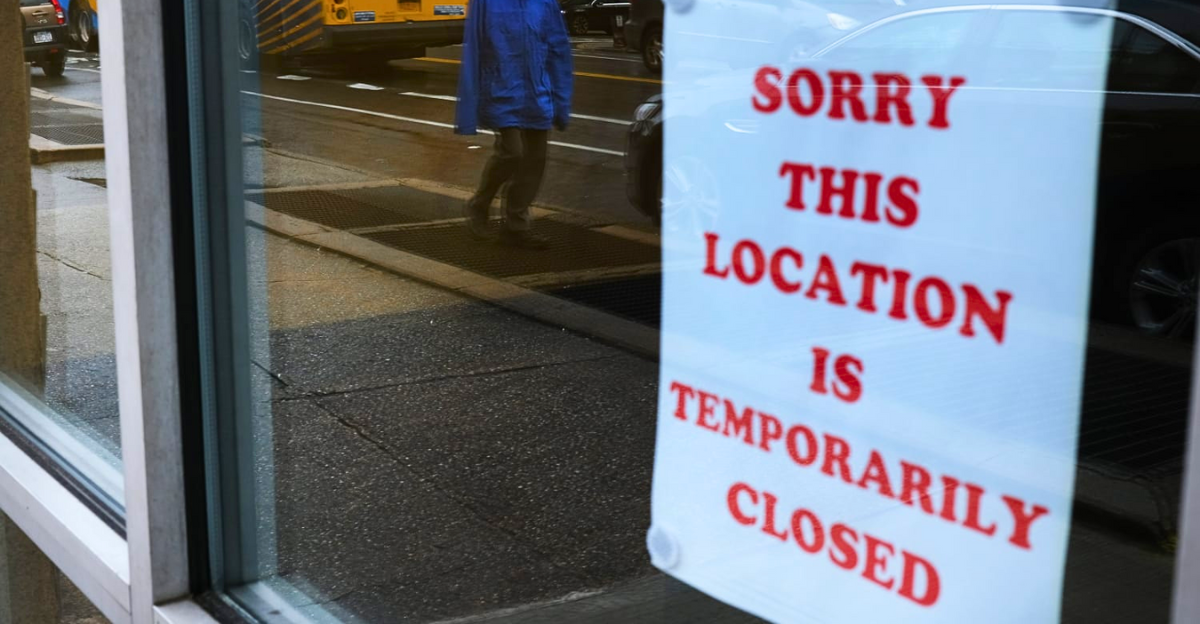
In recent months, small businesses have been hit hard by a constant stream of tariff changes. President Trump’s unpredictable trade policies, which often change with little warning, have left business owners struggling to keep up as new tariffs and exemptions are introduced seemingly overnight.
This ongoing uncertainty has made long-term planning nearly impossible for many entrepreneurs. Faced with rising costs and limited options, some entrepreneurs are being forced to consider drastic measures just to keep their businesses afloat.
Uncertainty at Every Turn

Over the past two months, President Trump’s shifting tariff policies have created confusion for small businesses, with recent changes causing significant disruptions. A US court ruled that Trump overstepped his authority with the tariffs, only for an appeals court to pause that ruling. The constant changes in tariff policy have created ongoing uncertainty for small businesses.
One week, a court may block a tariff; the next, an appeals court brings it back. This kind of back-and-forth has left business owners scrambling to adjust, forcing sudden changes in product strategy, disrupting supply chains, and putting hiring or expansion plans on pause.
The Human Toll

Behind every small business are real people facing real consequences. Julie Robbins, the CEO of a guitar pedal company, has warned that ongoing trade chaos could force countless small businesses to shut their doors. “My fear is, if this continues, there’s going to be like the mass extinction of small businesses,” she said.
EveAnna Manley, the owner of Manley Labs, which produces high-end electronics for recording studios, has been hit hard by recent trade disruptions. As a result, she’s had to reduce her employees’ hours by 25%. This shows the financial strain many small businesses are facing due to unpredictable tariff changes and global market challenges.
The Supply Chain Squeeze

Tariffs do not only drive up expenses, they also strain or destroy the global relationships that businesses have spent years, or sometimes even decades, building. If China decides to retaliate with its own tariffs, many American companies could lose access to important markets and suppliers.
For some businesses, like those in highly regulated industries like medical devices, shifting production simply isn’t an option. Changing manufacturing locations or production lines can cause major disruptions, affecting product availability, regulatory compliance, and quality control, which could impact patient safety.
The Margin Game

Smaller businesses usually run on very thin profit margins. This means that even small tariffs can have a big impact. Even a slight cost increase can make products too expensive to export or sell domestically.
Many business owners have revealed that they simply do not have the financial cushion to absorb extra costs caused by tariffs, which has forced them to make heartbreaking decisions about layoffs, price hikes, or even shutting down.
Big Brands vs. Small Players

While large corporations like Gap might feel the sting of these new tariffs, smaller businesses are hit the hardest. Without the financial resources or flexibility to adapt quickly, these smaller businesses face serious threats to their survival.
The National Federation of Independent Business has reported a noticeable decline in confidence among small business owners, which is a direct result of the growing uncertainty caused by shifting trade policies and unpredictable tariff changes.
Political Spotlight

Democrats have criticized Trump’s tariff policies, pointing to the challenges small businesses face. They have stated that these measures only benefit wealthy and powerful individuals while everyday entrepreneurs bear the brunt.
Many Democratic lawmakers have shared personal stories from small business owners to highlight how tariffs, along with inflation and other economic pressures, have led to rising costs, job cuts, and slower growth.
Adapt or Die

Right now, smaller businesses are working hard to adapt by diversifying their supply chains and exploring new markets.
Companies like Intuition Robotics are even considering international expansion and alternative sourcing. However, not all companies have the flexibility, time, or money to make these changes before the next policy shift hits.
The Emotional Cost

The emotional toll of tariff whiplash cannot be understated. Many business owners have come forward to express their deep frustration and anger, stating that they feel like the government has betrayed them.
“It’s just a freaking mess right now,” said EveAnna Manley. “And I’m so angry that my own government has done this to me.” This quote echoes a sentiment that is shared by many people who feel like they have been abandoned in a volatile economic landscape.
Rethinking Entrepreneurship

Because of these challenges, aspiring entrepreneurs should think twice before starting their own small businesses in this environment. The combination of unpredictable tariffs, tight profit margins, and political uncertainty creates risks that are higher than ever.
Until the economic environment stabilizes, the goal of building a thriving small business might remain out of reach for many hopeful individuals.
Discover more trending stories and Follow us to keep inspiration flowing to your feed!

Craving more home and lifestyle inspiration? Hit Follow to keep the creativity flowing, and let us know your thoughts in the comments below!
